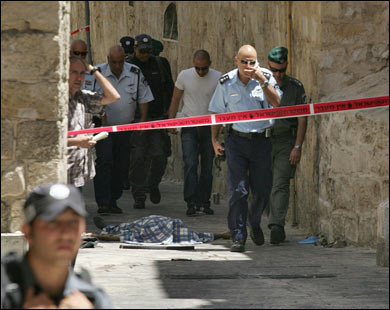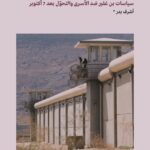After he has been cold-bloodedly murdered:
The Israeli Institution of National Insurance is still insisting on depriving Ahmad Khateb’s family from their insurance benefits
* Papers submitted to the court reveals the contradiction between the police’s story in the media and what is recorded in the investigation files, regarding the absence of what proves the incident’s national motivation.
* Meezaan Center for Human Rights holds the case as a sample to the treatment of the Israeli authorities to the Arab minority as enemies and suspects even if found innocent!

The legal procedure overtaken by MCHR investigates the exclusion of Khateb’s family from the widowed mother and orphaned children’s allowances, relying on section 326 of the National Insurance’s law, which states that: “insurance allowances are not entitled to committers of nationally-motivated crimes.”
Lawyers of MCHR condemned this decision, claiming that the section is not only originally unconstitutional and contradicts with the international human rights, but is also inconsistent with the basic law of “human dignity and liberty”, since it punishes the family, an innocent party who has committed no breach to the laws and never been accused of any crimes. They added that the Institution of National Insurance has overstepped its legal authority by adopting the police’s story of the murder instead of investigating it, knowing that the police have been unjustifiably hiding highly vital information regarding the authenticity of the official story of the accident from the family and its attorneys.
The recent developments in this case since it was filed by MCHR last year at the labor district court, which has the authority to decide in cases related to national insurance, is the response of the Institution of National Insurance which was received by MHCR only one week ago. The letter repeats what has been said earlier by the Institution about its position of the case, attached to it a letter sent to the Institution by the police, which describes the incident as a “fire exchange accident”, and where it is noticeable that the accident isn’t claimed to be based on national background in that letter.
These developments limit us to two choices: either the Institution of National Insurance gets orders from “above” without worrying about justifications for carrying these orders out; or the Institution considers every act committed by an Arab a nationally based crime, particularly if directed against Jews.
It is equally important to mention the fact that the police have not allowed any body to look into the case’s files, and never provided any proofs for its story of the event, while in the same time they summoned Khateb’s father and brother for investigation everytime the issue of the murder was raised by the media. It is further important to stress the fact that Khateb’s murder by the security company members has been recorded by the security cameras installed in every corner of the old city, but the police insists on not allowing anybody to examine it, after they have taken off the last camera which is believed to have had captured the last moments of the event.
In light of this, it is legitimate to question the cold-blooded murder of the deceased.

MHCR will continue suing this case considering that it is an example of how the Israeli authorities treat Arabs based on the assumption that they are suspects and enemies that can be shoot at for the mere suspicion and without worrying about the consequences that might affect the one responsible for the shooting, who may even be called a hero, as long as the event hasn’t been captured and approved, like in the case of Ashraf Abu-Rahma (27) from the village of Na’aleen who was shoot by an Israeli soldier while hand cuffed and blindfold.










